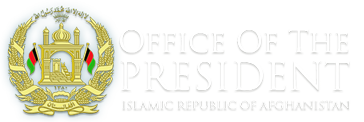
Bangalore: - On February 13, 2015, Deputy Chief of Mission M. Ashraf Haidari was invited by the St. Joseph’s College Department of Political Science to give a lecture on “Indo-Afghan Relations in a Changing World: The Way Forward.” A large number of Afghan, Indian, and international graduate students, pursuing MA and PhD degrees, attended the lecture, which reviewed Indo-Afghan relations from an historical perspective and then highlighted modern developments in the deepening of bilateral ties between Afghanistan and India.
“With the exception of a brief period under the Taliban, Afghanistan and India have always maintained friendly relations with one another, and worked together to advance regional peace, stability, and prosperity,” said Mr. Haidari. He discussed the generous reconstruction assistance the Government and people of India have provided to Afghanistan over the past 13 years, in spite of India’s own domestic needs. “Higher education assistance has been one of the key contributions of India, which has helped build the critical capacity the nascent institutions of the Afghan State require,” pointed out Mr. Haidari. He added that India had also helped build a major transmission line from northern Afghanistan to Kabul, as well as a part of the country’s national ring road, which connects the country internally, while providing it with an alternative sea route via the Chahbahar Port, once it is fully operationalized.

Moreover, from a geopolitical and geo-economic perspectives, Mr. Haidari noted that Afghanistan and India shared common interests, underpinned by a “win-win” agenda of cooperation with the rest of the region. “We welcome the constructive involvement of India and our other neighbors in the reconstruction and stabilization of Afghanistan, since it’s through sincere, results-oriented regional cooperation that we can overcome the common challenges confronting us,” he noted. “The security threats of terrorism, radicalism, and drug trafficking are no longer Afghanistan’s problems alone but those of every country in the region, including India,” Mr. Haidari added. In essence, he told students that any country in the region or beyond, which has been assisting Afghanistan over the past decade or more is equally driven by their own interests and concerns to cooperate with Afghanistan in addressing those fast globalizing challenges.
Additionally, Mr. Haidari informed the students of the hard efforts of the National Unity Government, led by President Ashraf Ghani and CEO Dr. Abdullah Abdullah, to end war and violence in Afghanistan through an effective peace dialogue with the armed opposition, including the Taliban. He noted that it was time for the region, particularly for major countries of India, China, and Russia, to own and lead efforts to address the region’s problems, while thanking extra-regional players, such US-led NATO, for their ongoing commitment to the long-term stabilization and reconstruction of Afghanistan.
“Since the end of the WWII, no nation has suffered as much from imposed conflicts on our country as we have for the past 36 long years; so, it’s about time that all regional stakeholders, near and far, come together to stabilize Afghanistan, indeed, not only for the sake of the Afghan people but for their own sake,” Mr. Haidari noted. A peaceful, stable Afghanistan is in the best, long-term interest of every country at the “Heart of Asia,” he added. Mr. Haidari welcomed the fact that India shared Afghanistan’s view as such, and had been working bilaterally and multilaterally to further the country’s rightful cause of institutionalizing peace, pluralism, and prosperity, the accomplishment of which would benefit the whole region.






